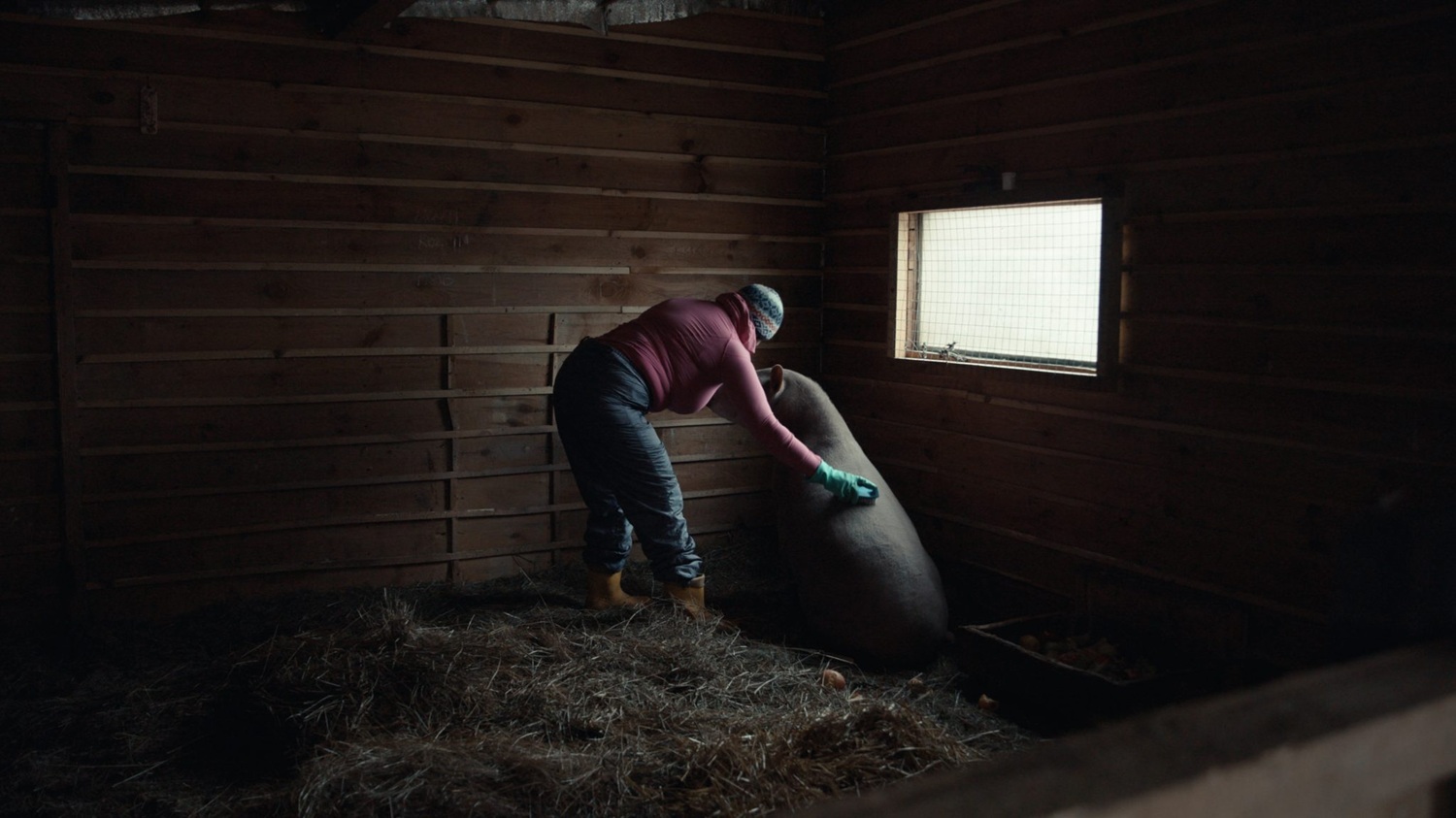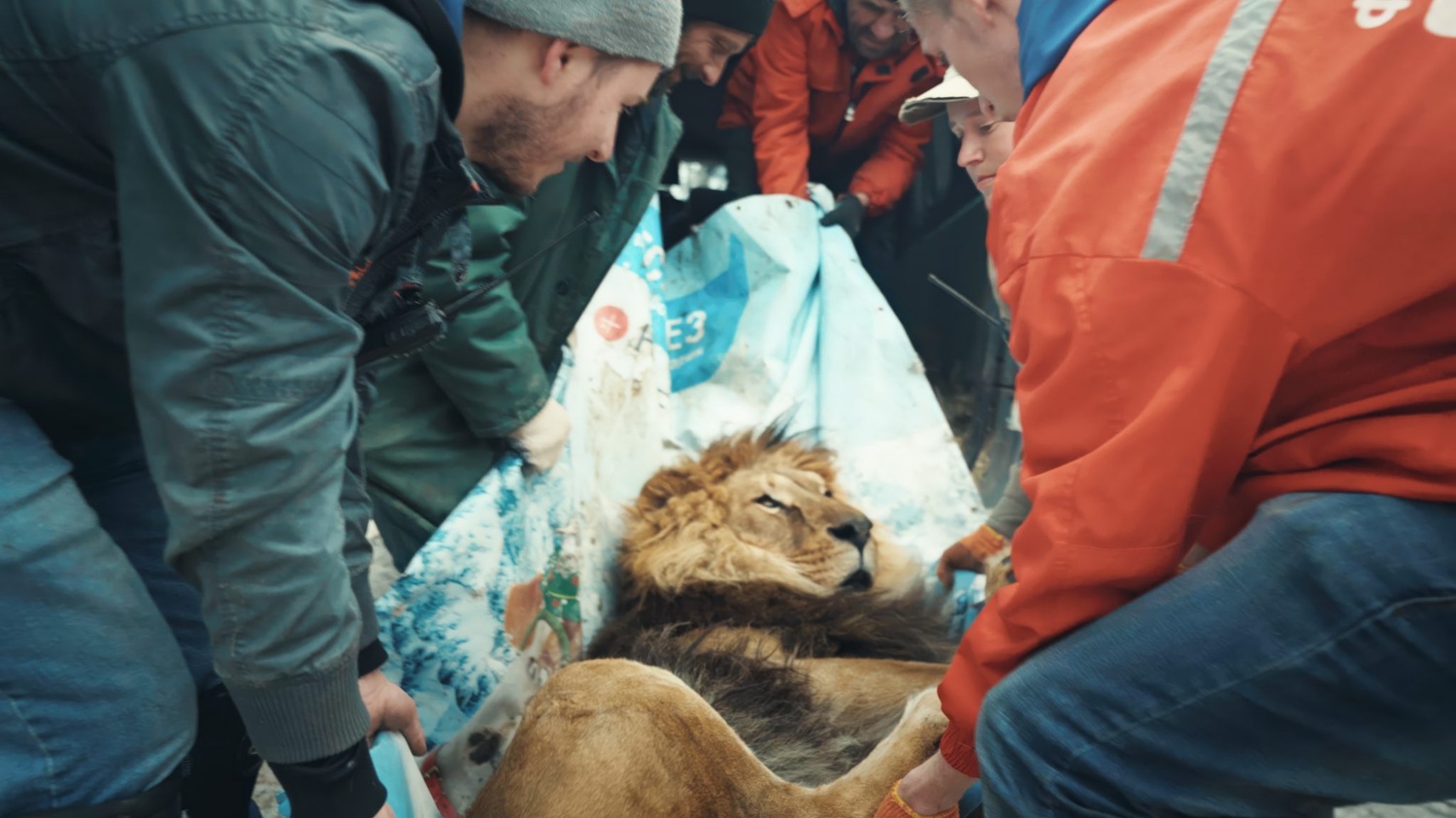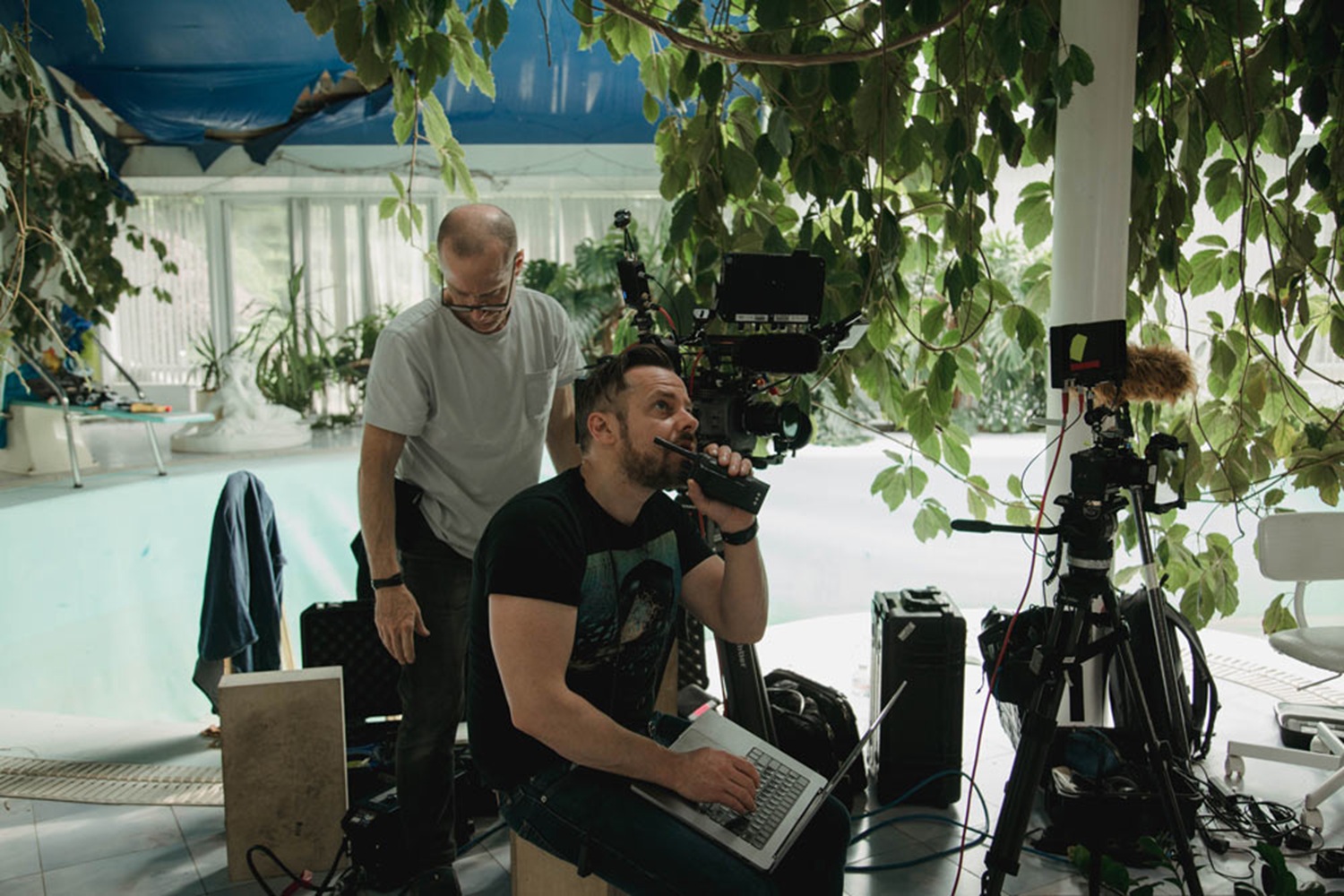Director Joshua Zeman always wanted to make a war film.
What he didn’t know was that he’d find one in Ukraine and that those enduring the war would be animals caught in the crossfire of Russia’s invasion.
“Checkpoint Zoo” focuses on a mission impossible about how volunteers and zookeepers evacuated nearly 5,000 animals from a zoo that had ended up at the center of a war on an unprovoked country that still rages.
Set in Kharkiv at the Feldman Ecopark, Zeman plunges us into the chaos of 2022 as the first bombs fall.
The zookeepers and volunteers face a daunting decision. Should they leave the animals behind to escape the bombings and save their own lives or stay and help save the helpless inhabitants?

A keeper at Feldman EcoPark takes care of a tapir. (Photo courtesy of the film)
“It was a living organism,” says Vitalii Selevin, one of the employees, about the Ecopark founded by Oleksandr Feldman. “That was before the war.”
Footage from prewar at Eco Park shows Feldman’s dream. “My idea was to build a small park where children could play.” What evolved was a large zoo that housed thousands of animals and did good for Kharkiv, offering animal therapy and other community offerings.
Zeman captures the critical moments of the first days when Ukraine was bombed using news archives and raw footage, while capturing the destruction of what was once the lively and joyous EcoPark.
The zoo, only 30 kilometers from the Russian border, became part of the battlefield.
Whereas 100 people had taken care of the animals before the war started, after the war, there were only ten left.
In need of help, Vitalli wrote a post on social media asking for anyone who could offer assistance in any way.
Tymofii Kharchenko, a veterinarian working on his Ph.D., responded. He becomes one of the central figures of Zeman’s film. When he couldn’t get in touch with anyone from EcoPark, Tymofii showed up.
Some of the footage is also gathered from the people themselves. The student vet’s cellphone photos show him entering the park with no one there. He describes it as appearing “apocalyptic.”
The animals and the workers aren’t spared the casualties of the war. One of the park’s bus drivers is killed in a barrage of Russian soldiers’ bullets with Zeman zooming in on the numerous holes left in the windshield of Eco Park’s bright and colorful bus. Another worker was also killed in one of the many Russian attacks on the park.
Later in the film, a family who had lived near the park and helped rescue the animals also became victims. In all, six employees and volunteers were killed.
The film director got the idea from an article he saw on the front page of the New York Times about a chimpanzee named Chichi who was staying at the Kharkiv Zoo and escaped and was walking through the middle of Freedom Square in the middle of Kharkiv. Zeman saw it as a metaphor for the Ukrainian people looking for their freedom from the unrelenting and unprovoked bombings.

Volunteers and workers at Feldman EcoPark in Kharkiv, Ukraine, load a lion into a truck in an evacuation effort from Russian bombings. (Photo courtesy of the film)
The film’s most powerful moments are when Zeman trains his lens on the animals: a lion sedated and lifted onto a truck under shellfire, a chimpanzee gazing out from a makeshift cage, frightened panthers huddled together, a keeper taking care of a tapir as if it were her own child.
The most harrowing moments are when the volunteers and workers dodge bombs in an effort to get the animals out of harm’s way. At one point, a volunteer runs with a moose that is emaciated from hunger to safety. Lions and panthers, only partially sedated (full doses couldn’t be given because there wasn’t enough for all the predators), are loaded into the back of vans to be taken to safety.
“There are smart decisions and there are right decisions,” Andrii Kharchenko, one of the key figures and EcoPark devotee who won’t leave the animals, in the story says. He has his own story to share of how EcoPark saved him – that Oleksandr Feldman gave him a place to stay in a small cabin on the grounds of EcoPark, when he was at his lowest, battling drug addiction and living on the streets.
Zeman lets the action speak for itself, never sensationalizing it. He doesn’t need to. The real-life race against time is dramatic. The music underscoring the film adds to the intensity.There are local connections to “Checkpoint Zoo.”

Joshua Zeman in Ukraine directing "Checkpoint Zoo." (Photo courtesy of the film)
Lauren Cohen, director of programming at the Miami Film Festival, joined on as one of the executive producers because, as she said, “The film was so special and had so much success during its festival run, but it never got distribution.”Like the workers who gather to save EcoPark, four Miami locals, including Cohen, joined two other producers.
Cohen says that the Miami locals help to fund the theatrical release because of their passion for the film and the subject matter. The others with Miami ties are Lauren Obed, Phillip Cohen and Jordan Schwartz. (Leonardo DiCaprio, a staunch conservation activist, is also listed as an executive producer.)
The on the ground spirit of “Checkpoint Zoo,” from the workers to the local producers who pitched in, is the film at its best. A dive into the innocent victims of the war – many helpless to escape the missiles, and those willing to do whatever it takes to make something happen, along with those who got behind the movie to make sure it is seen.
"Checkpoint Zoo" is now playing at Coral Gables Cinema. 260 Aragon Ave., Coral Gables. Find out more about the movie at www.checkpointzoo.com.




